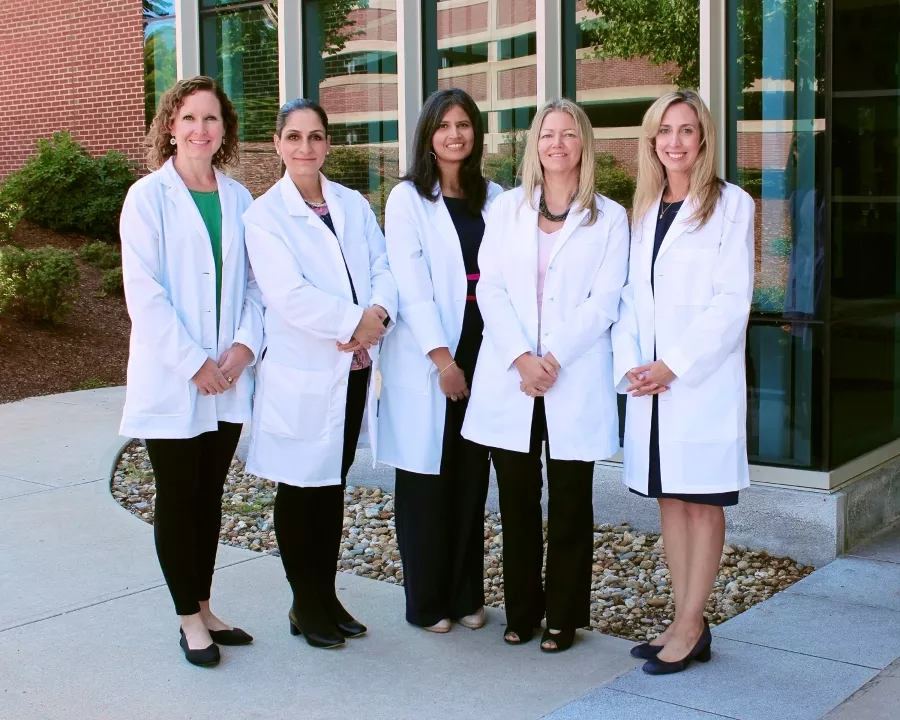
The program is located in the Women’s Wellness Center at the hospital’s main campus at 295 Varnum Avenue in Lowell.
Women are referred to the program based on an assessment score that estimates their lifetime risk of developing breast cancer. Every woman who has a mammogram at Lowell General is given a risk assessment score of average, intermediate (middle) or high risk based on a brief history.
Patients are encouraged to talk with their providers about their results and also about the option of being referred to the Breast Cancer Risk Assessment Program.
Jennifer Gilliatt, breast health nurse practitioner, says that patients are often very nervous at their first appointment. Many are not aware of their risk factors and also worry about being diagnosed with breast cancer in the future. She and her colleague Kelly McAllister make it their mission to ensure patients know that they are doing everything possible to minimize their risk. The multidisciplinary team approach is at the heart of this mission.
Each patient has a team of experts invested in their care, from breast health nurse practitioners to breast surgeons, medical oncologists and breast imaging radiologists. They all work together to discuss recommendations for risk-based breast cancer screening and additional testing and follow-up.
The initial consultation appointment is focused on educating women about the role these factors play and the options for early detection and prevention.
“Women who come for their first visit are grateful for the education and opportunity to have a detailed assessment,” says Gilliatt. “They often tell me that no one has ever given this level of attention to their breast health, and they weren’t aware of the many options to help them reduce their breast cancer risk.”
She will also discuss genetic counseling and testing when appropriate. This testing is available through a close partnership with the Genetics Division of Tufts Medical Center. Gilliatt noted that many women are eager to get this testing done, not so much for them, but for their children. Knowledge of genetic cancer risks can benefit many members of a family and allow for preventative measures to be taken.
In addition to increased screening with mammograms and breast MRI, women may also be candidates for risk reduction medications such as Tamoxifen and aromatase inhibitors. Research shows risk reduction medications can decrease breast cancer risk by about 50%. Historically these medications are underutilized and one of the options provided by the Breast Cancer Risk Assessment Program.
For those women with a family history of breast cancer, the ongoing follow-up and close attention to their breast health ensures they have some level of control over something they normally wouldn’t.
“Many women come in and have seen family members undergo treatment,” says Gilliatt. “It’s comforting for them to know they are being monitored; there’s a great deal of security in that.”
Risk factors for breast cancer include:
- Age – women are more likely to be diagnosed with breast cancer as they get older
- Family history of breast cancer or ovarian cancer
- Dense breast tissue
- Prior radiation to the chest
- A history of high-risk genetic mutation
- Reproductive and menstrual history
- Certain pathology found on a breast biopsy
- Lifestyle factors such as obesity and lack of physical activity
Call 978.937.6023 to schedule your mammogram.